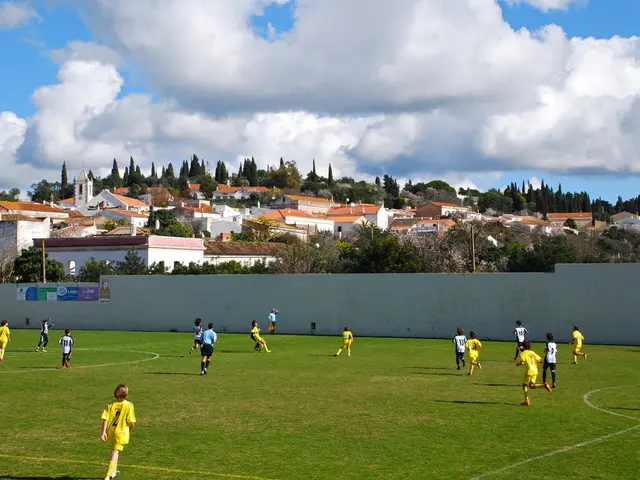Varying Rates of High School Dropouts Observed in Quebec Schools
Fresh Take:
A typical high school pupil is more likely to drop out before completing their studies than a student enrolled in a unique educational project, according to Education Minister Bernard Drainville's recent data. This disparity in success is causing concern among opposition politicians.
The data presented by Mr. Drainville during his ministry's budgetary study reveals an increase in the dropout rate among secondary school students in the public system during the 2023-2024 academic year. Preliminary figures suggest a dropout rate of 16.9%, as opposed to 15.1% the previous year and 16.3% in 2021-2022. "Naturally, it's too high," the minister admitted.
However, this dropout rate plunges to 6.1% for students benefiting from a selective project that focuses on enriching their sporting, artistic, or scientific skills. For students participating in programs without a selection criteria, this percentage rises to 7.8%, as per the analysis presented by Mr. Drainville.
If we only counted the dropout rate of secondary school students following the traditional path, this percentage would reach approximately 24%, the Education Minister revealed in response to questions from Sol Zanetti, a Solidarity Deputy.
Mr. Drainville views the lower dropout rate among students following a specific path as "great news," confirming that his government made a wise decision by investing in expanding access to these projects. The number of such programs offered in the school network has increased by nearly 5% in 2024-2025 compared to the previous year.
"These projects indeed serve as a source of motivation for students. And when students are motivated, there's less chance of them dropping out and a higher chance of them obtaining a diploma," the Minister said, concluding that these projects "make school more enjoyable."
A Word of Caution from Experts
However, we must be cautious in drawing conclusions, stresses Mélanie Paré, a professor at the Faculty of Sciences of Education of the University of Montreal, since access to these projects, even without selection criteria, remains limited due to the costs parents face when enrolling their child. "There aren't many programs without selection, whether it's direct or indirect," the expert points out.
Additionally, students in difficulty are not usually encouraged to enroll in these programs, she notes. "They are recommended for students who have more advantages, such as better grades."
Therefore, we should not ignore the consequences of this "creaming" effect on the fact that students in these programs persevere more in their studies, adds the professor. She believes that these projects should not be seen as a magic solution to dropout. For many students, access to better specialized support and tutoring is also necessary, according to the expert.
Concern Over Widening Educational Gap
Currently, more than half of high school students in Quebec are enrolled in a specialized educational project. However, this means that approximately one student in two is at a greater risk of dropping out since they don't have access to such a project, as expressed by Sol Zanetti, a Solidarity Deputy, on Wednesday.
"The analysis I'd like to share with you is that school segregation leads to significant differences in dropout rates at various levels," continued Mr. Zanetti, who is worried about the implications of this situation on "mixity" in classrooms, as the presence of gifted students alongside those struggling can contribute to the success of the latter. The solidarity elected official called for the creation of specialized educational projects that are accessible to everyone without selection, which, in his opinion, "would help restore the mixity that has been lost in the school environment and promote the overall success of students." However, "the moment we accept selection, that's where we create school segregation," insisted Mr. Zanetti.
In response, Minister Drainville stated his objective to ensure "the maximum number of Quebec students possible are enrolled in a specialized project in high school," with the CAQ government planning to continue investing in accessible programs without fees. "We must not stop here," he pleaded.
- Opposition politicians are expressing concern about the increasing dropout rate among students in the public school system, as revealed by Education Minister Bernard Drainville.
- The dropout rate among students enrolled in a unique educational project that focuses on sporting, artistic, or scientific skills is significantly lower, at 6.1%.
- In response to a question from Sol Zanetti, a Solidarity Deputy, Education Minister Bernard Drainville revealed that if only the dropout rate of secondary school students following the traditional path was considered, it would reach approximately 24%.
- Professor Mélanie Paré of the University of Montreal warns that the lower dropout rate among students in specialized projects could be due to limited access, as these programs often come with costs that not all parents can afford.
- Sol Zanetti calls for the creation of specialized educational projects that are accessible to all students without selection criteria, arguing that this would contribute to the success of students and help restore mixity in classrooms.








